Spinal cord injuries of all varieties are typically followed by long periods of intensive rehabilitation. Some of this takes place in hospitals, under the watchful care of specialists who help patients to regain mobility, manage their condition, and limit further damage. Far longer than this period, however, is the time in which a patient is back at home, learning to adjust to this new way of life and seeking to regain the confidence lost through physical impairment.
This blog discusses the process of rebuilding self-care skills during the recovery process for a spinal cord injury. To learn more about how to adapt self-care skills or to enquire about rehabilitation services, contact Royal Rehab today.
Returning home
Exiting hospitalisation after a spinal cord injury can be daunting. The immediate care and recovery are over, but now you embark on the journey of adjusting your daily life and working around your body’s new needs. No two injuries are the same, but everyone recovering from a spinal cord injury shares a common goal: maximising your skills and lifestyle with the physical functionality available to your body.
Adapting to life outside of the hospital will involve plenty of recommended recovery plans. Physical therapy exercises will be readily available for you, and when combined with your other treatments these can help to limit the side effects of your injury, preserve your overall health, and potentially help you to continue to rebuild mobility. Rehabilitation outside of the hospital can feel challenging, and it’s natural to feel frustrated by the ways in which your daily routine has had to change. It’s important to remember that there are ways to work through the process and rebuild confidence.
Empowering independence
One of the biggest hurdles for people in recovery from a serious injury is rehabilitation through self-care. This is one of the most important aspects of recovery. In the aftermath of a spinal cord injury, it’s easy to focus on the overarching skills to be rebuilt – mobility, brain function, for example. However, being self-sufficient will improve confidence in a patient, helping them feel independent and ‘themselves’ again after a life-altering injury.
What sort of self-care are we referring to here? Essentially, it’s all activities someone undertakes to promote their own health, restore wellbeing, take care of mental health, and manage illness. Giving a patient the chance to rebuild their life with their new lifestyle changes and providing opportunities to learn ways to handle treatments and symptoms independently is essential to the rehab process.
Finding support
Your rehabilitation program is going to be customised for you, and this will come with a team of experts ready to support you through the recovery process. Whatever challenges you’re facing, it’s essential to communicate this to your team, who can connect you with support systems that can offer guidance. Rehabilitation, health care, and wellness support can help you address all the symptoms you may find yourself faced with – whether it’s mobility, mental health, pain, breathing difficulty, sexual dysfunction, anxiety, or muscle tension. Whatever it is, there are programs and specialists available to help.
This may include support from: physical therapists, occupational therapists, social workers, nutritionists, rehabilitation counsellors, or a variety of other qualified professionals. As you learn to rebuild your skills after a spinal cord injury, it’s well worth researching the programs and options available to help you through this. Options such as short term accommodation providers may offer experiences and support you need to adapt to what life looks like after a spinal cord injury.
Rebuilding your quality of life
Working with doctors and specialists will provide you with a clear understanding of the nature of your injury and its long-term effects. Here, you’ll set achievable goals to work towards, making that path to recovery clearer and less daunting. However, there’s no way to predict what life after a spinal cord injury will look like.
Find what works for you, uniting the things that made your life fulfilling before your injury and discovering how you can bring them into the ‘new normal’ you find yourself facing. Rebuilding confidence and skills may be daunting but doing so is essential in the journey towards reconstructing the quality of living that you deserve.
Contact Royal Rehab for quality rehabilitation services
Recovering from a spinal cord injury is a long and difficult process. With the right support and plans on your side, however, regaining confidence and a form of independence is an achievable goal. If you or a loved one are looking for personalised and professional rehabilitation care for people with spinal cord injuries, Royal Rehab may be the team to call.
Our comprehensive programs work to meet patients where they’re at in their own journey, helping them to regain skills and confidence, ensuring that they find the quality of life they deserve within their new physical capacities. Contact us today to start your recovery journey with Royal Rehab.
Contact Royal Rehab today on (02) 9802 9222 and enquire about our spinal injury programs to begin your journey to recovery.



